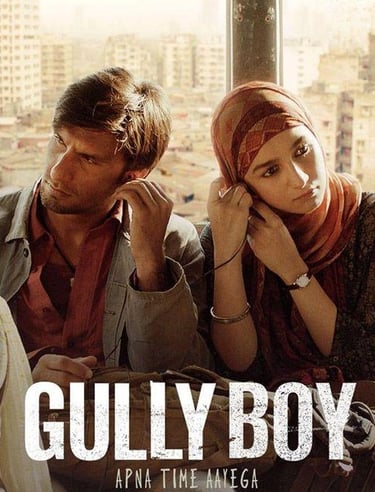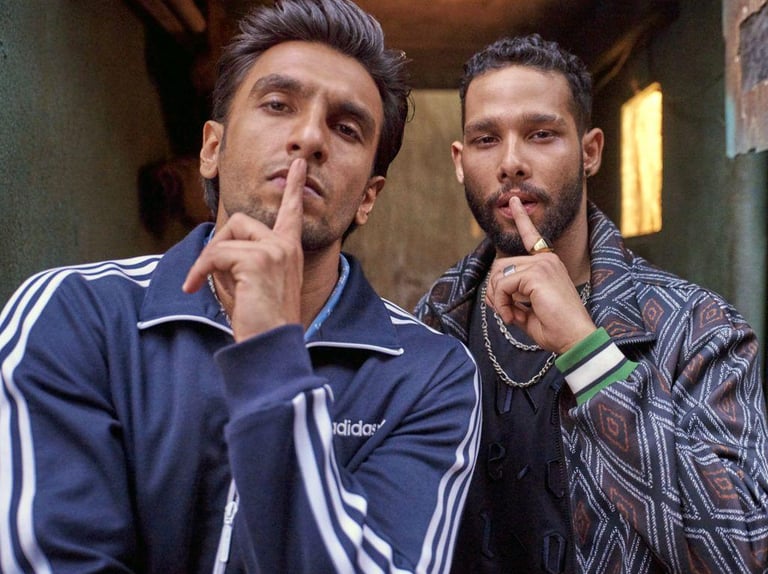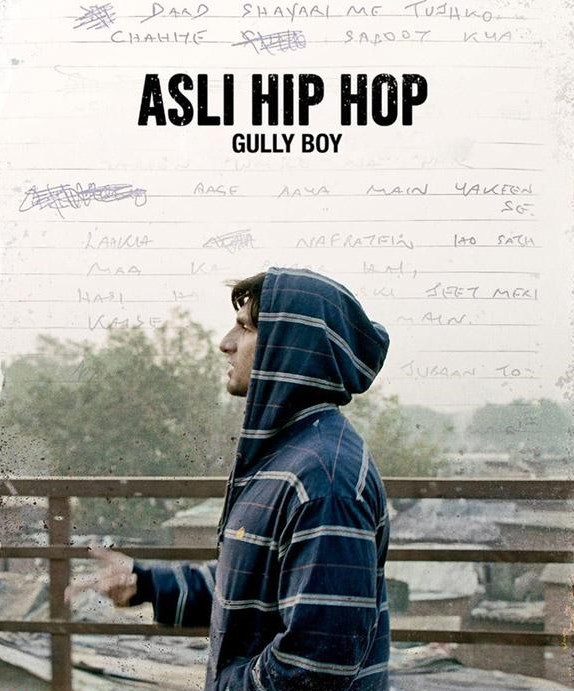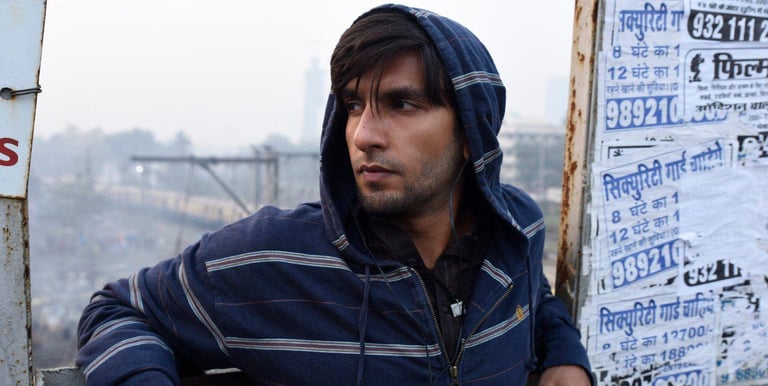"GULLY BOY: To Take You Out of Gully"
This blog offers a heartfelt movie review of "Gully Boy," a powerful film that explores the themes of dreams, hope, and courage in the contrasting worlds of poverty and privilege, while inspiring a redefinition of success and aspirations.
10/23/20234 min read


Films are often about getting lost in an imaginary world built through directors' eyes to understand different versions of reality, dreams, love, grief, relationships, and challenges of this world. But watching real-world stories impacts us on a different level than fiction, sometimes. Gully Boy portraying ‘slums’, the peculiar world unknown to us is one such film.
In 'Gully Boy,' the cramped gullies and tightly packed houses, sharing walls with virtually no space in between, serve as a powerful symbol of the daily struggle and suffocating constraints faced by people living in these neighborhoods, where even the simplest dreams can feel as hard to breathe as the crowded streets themselves. The character's unwavering determination to dream big and courage to fight against all odds to fulfill those dreams is what stayed with me.
Murad is a 22-year-old son of a driver in Mumbai. His situation and the people around him tell him he should get educated and a white-collar job. He loves hip-hop instead as he finds music is helping him express his thoughts about inequality and struggles. He's in awe of the power of music and how it will make him reach millions of people and be part of their memory even after he dies.


In "Gully Boy," Murad's harsh reality is so daunting that it leads him to question his very identity and whether he should dare to aspire for larger dreams and strive to transform them into his newfound reality. Strong and spirited Safeena who loves Murad with all her heart tells him how his name strongly resonates with wishes, passion and she encourages him to pursue his dreams and do whatever his heart truly desires. Living in the abusive atmosphere, with his father being cruel to his mother and accepting his flawed father with his new wife life is sadly difficult, he writes rhymes about his feelings meanwhile. He gets inspired by Mc shers open mic at the college and his journey of being a rapper starts when he approaches McSher with his lyrics.
Every rap song of Gully Boy is artistic, but "Doori," Murad's first record, captivates your heart, beginning his odyssey of dreams and painting a poignant picture of the contrasting worlds of poverty and opulence. His journey is a dual struggle, he is not just battling verses but also becomes a driver to shoulder his family responsibilities due to his ailing father. We might relate to it by how some of us struggle between 9 to 5 jobs and finding time for things to do we love and switch careers.
The "Doori" poem moved me to tears, revealing the divide between people solely due to them being of particular economic status. While Murad drives, his boss's insults cut deep, drawing comparisons to his daughter's privileged life and Murad's education. I feel he might have led to writing such deep lines. She weeps, and Murad's poem echoes his inability to console her as a driver, highlighting the poignant contrast.
Kehne ko hum pass hai par
Kitni doori hai
Yeh bhi kaisi mazboori hai
Tumse hum dardi bhi
Nahi kar sakta main
Mere bas ki baat nahi hai
Main yeh bahte aansu pochun
Utni meri aukaat nahi hai
Main bhi yahin hoon
Tum bhi yahin ho
Par sach ye hai
Main hoon kahin
Tum aur kahin
Kehne ko hum pass hai par
Kitni doori hai
Ye bhi kaisi mazboori hai


Sky being from the same privileged and rich background impresses us with her broad mindset of how she values talent and people despite where they come from. She inspires us to be the same. Murad cheating on Safeena by falling for the sky is deeper than most of the audience judges it. As Sky encourages him to music, Murad gets attracted to her for her lifestyle and the attention he never got from the people she comes from.
Moeen, there to distill the essence of our challenging lives, simply asks Murad, "Asaan kiske liye hai?" when Murad seeks him in his toughest hour. I remind these lines to myself in my difficult, hopeless times. Even in jail, Moeen's love for the abandoned slum children and their heart-wrenching hunger remains unwavering.
"Gully Boy," a film of dreams, hope, and courage, eternally resides in our hearts, irreplaceable and unforgettable. It evolves us by reshaping the belief that "raja ka beta raja Banega, nokar ka beta nokar" – anyone, regardless of their background, can dare to dream and chase their aspirations.
Some of us are trapped in a world where society often pushes us into safe 9-to-5 jobs instead of our passions, if you are someone in your 20s who pursues what they truly love and what you don’t love cause of responsibilities and work hard towards both of it, without the expectation of so-called success, find solace in the simple reminder:
"Apna time ayega" – our time will come.



